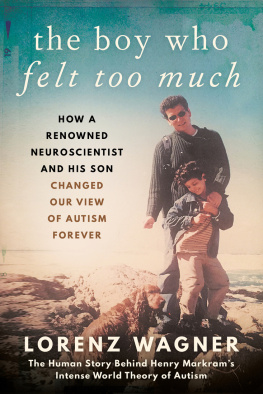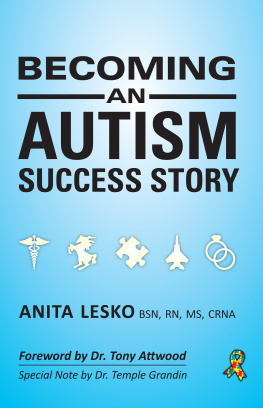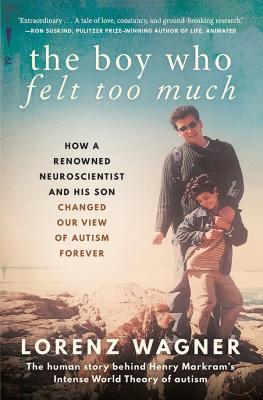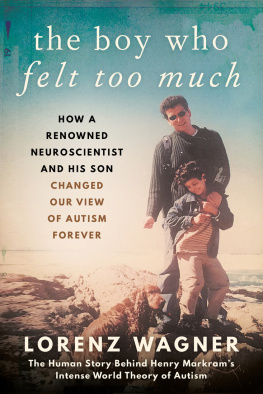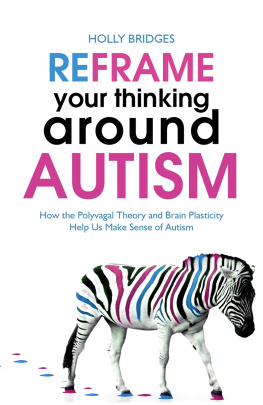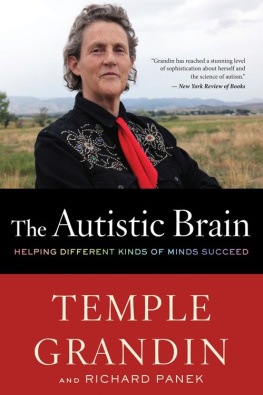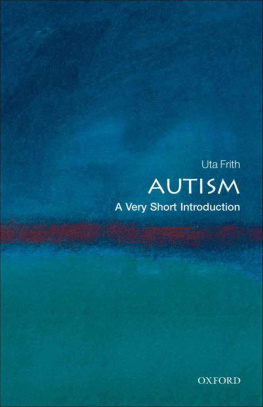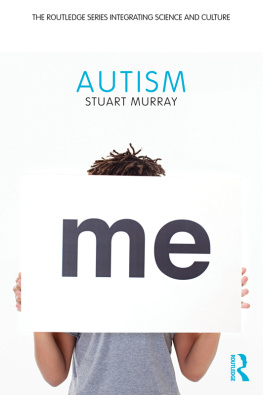


Copyright 2018 by Europa Verlag GmbH & Co. KG, Berlin
English-language translation copyright 2019 by Skyhorse Publishing, Inc.
All rights reserved. No part of this book may be reproduced in any manner without the express written consent of the publisher, except in the case of brief excerpts in critical reviews or articles. All inquiries should be addressed to Arcade Publishing, 307 West 36th Street, 11th Floor, New York, NY 10018.
First English-language Edition
Arcade Publishing books may be purchased in bulk at special discounts for sales promotion, corporate gifts, fund-raising, or educational purposes. Special editions can also be created to specifications. For details, contact the Special Sales Department, Arcade Publishing, 307 West 36th Street, 11th Floor, New York, NY 10018 or .
Arcade Publishing is a registered trademark of Skyhorse Publishing, Inc., a Delaware corporation.
Visit our website at www.arcadepub.com.
Visit the authors website at lorenzwagner.com.
10 9 8 7 6 5 4 3 2 1
Library of Congress Cataloging-in-Publication Data
Names: Wagner, Lorenz, author.
Title: The boy who felt too much : how a renowned neuroscientist and his son changed our view of autism forever / Lorenz Wagner ; translated from the German by Leon Dische Becker.
Other titles: Junge, der zu viel fhlte. English
Description: First English-language edition. | New York : Arcade Publishing, [2019]
Identifiers: LCCN 2019026513 (print) | LCCN 2019026514 (ebook) | ISBN 9781948924788 (hardcover) | ISBN 9781948924795 (ebook)
Subjects: LCSH: Markram, Henry. | Parents of autistic childrenGermanyBiography. | Autistic childrenGermanyFamily relationshipsBiography. | Fathers and sons. | BrainResearch.
Classification: LCC RJ506.A9 W33313 2019 (print) | LCC RJ506.A9 (ebook) | DDC 618.92/858820092 [B]dc23
LC record available at https://lccn.loc.gov/2019026513
Cover design by Erin Seaward-Hiatt
Cover photograph courtesy of the Markram family
Printed in the United States of America
For Romy
Contents
I
THE MYSTERY
Is That Your Kid?
Is that your son?
Yeah, why?
You wont believe what he just did.
The car was coasting. Kai heard the wheels crunch as it drew to a halt outside his house. The car door opened, and a young man hopped out. He popped the hood and disappeared beneath it. Youve got to be kidding me! he fumed.
Kai emerged from the front yard. It was late in the morning, and the street was empty. Cars were a rare sight around there. Kai often played in the street with his sisters. Mostly only bikes passed by, anywaystudents on their way to class. Kai lived with his parents and sisters on a sprawling college campus, which boasted sculptures, water fountains, benches, flame trees, a Japanese garden, and enough space to spend the whole day wandering idly, accompanied by chirping birds.
Hello. Im Kai.
The man ignored him.
Is your car not working?
No, the man grumbled. How would he get to class now? He was stuck in this damn residential area and would be too late for his exam. If he didnt make it there on time, theyd mark him absent and fail him.
Kai spun around and dashed off. The man got back in his car and turned the key. The engine sputtered for a moment and died again.
The boy came running back. What the hell did he want?
He was holding something in his hand.
Here, said Kai. My moms key.
Excuse me?
You can take our car.
The man stared in disbelief and took the key.

Kai loved people, and it was hard not to love him back. At the age of two, he started twisting his way out of his fathers grip and running over to themrandom pedestrians, the postman, elderly people sitting on benches basking in the warmth of the morning sun. Kai opened his arms and clung to their legs. He didnt say anything. They froze at first, but when they looked down to see his twinkling brown eyes staring up at them, they couldnt help but laugh. Kai didnt speak much. He spoke with his hands and glowed from inside. He warmed their hearts more than the sun possibly could. Soon they were sitting on the benches because of him, the little boy who had just moved to Rehovot, Israel.
Kai was born in Heidelberg, Germany, on June 21, 1994, the first day of summer. It was the longest day of the year and proved to be the longest birth his mother Anat would have to endure, dragging on some twenty hours. While she twisted and turned in pain, Henry wandered up and down the hallway. Their two daughters, Kali and Linoy, would soon have a baby brother. They could barely contain their excitement.
The midwife laughed when she held Kai up by his feet. He was so long and heavy and had so much hair on his head. We might as well put a jacket and pants on him, she said. Send him straight to kindergarten.

Babies are often born with a smile on their face. Experts call this a reflex smile . Its a newborns way of ingratiating itself. That smile is many parents first memory of their child. Henry doesnt remember if Kai was smiling. He remembers something else: newborn Kai kept trying to lift his little head. His wide eyes had this absorbing glimmer, tracking every light and sound, darting back and forth on high alert.
Henry had treated many babies during his time at medical school, but he had never seen eyes like that. His sons gaze seemed targeted, intentional. That was impossible. A newborns vision doesnt develop for another few months. Until then, everything is blurry to their eyescolors, contours. They can only see whats right in front of them: their parents faces, the mothers breast. Kai, however, behaved as though he could see.
His pupils darted nonstop. Henry was worried. The doctors on the ward huddled. They had never seen a child like that either. As they inspected Kai carefully, the worries vanished from their faces. Kai scored a full ten points on the Apgar test, which rates a newborn by appearance, pulse, grimace, activity, and respiration. All good, boss, his colleagues told him. Henrys fears turned to pride: He is the most alert child on the ward, he told Anat. Our son is something special.
Anat wasnt all that comforted. She watched Kai even more closely. When he was around six months old, she noticed a change in his eyes. She couldnt put it into words; it was a feeling more than anything. Henry didnt see it. Neither did the doctor they consulted. A wonderful child, he assured them, fit as a fiddle.
You see? Henry said to Anat. Everythings fine.
And so, the Markrams life continued blissfully. Kais bassinet became a stroller, then a tricycle. Their house echoed with laughter and happy shrieking. They spoke and joked in multiple languagesEnglish, Hebrew, German. Henry was from South Africa, Anat from Israel. His work as a neuroscientist had brought them to Heidelberg. He had made a name for himself in his field at an early age, asking questions and devising answers that seemed precocious for a grad student. Bert Sakmann, a German Nobel Prize winner in medicine, recruited him to the Max Planck Institute for Medical Research. Who knows? Maybe this Markram would someday win the Nobel Prize himself.
Next page
